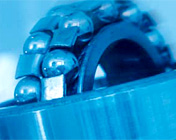When the White House announced early this year that it would submit its fiscal 2009 budget online — saving both money and 480 trees — it was a sign of the times. The combination of cutting costs and protecting the environment is in vogue like never before.
Corporate treasury managers are among those in the business world who can benefit by taking note of this winning approach.
For years, a growing number of electronic cash management solutions have offered treasury managers enormous cost-reduction and efficiency benefits. Now, these solutions are also being lauded for a reason that your CEO, board of directors and customers appreciate more than they did even just a few years ago:
They're good for the environment.
Global Warming and Higher Gas Prices
Maybe it has to do with improving corporate reputations following high-profile corporate accounting scandals. Maybe the growing focus relates to mounting concerns about global warming, fueled by Al Gore's "An Inconvenient Truth" documentary and stories in the popular press. Or maybe it's escalating gasoline prices that have so many Americans, and their employers, looking to adopt more sustainable practices.
More than likely, it's all of these reasons, as well as a sincere desire to do the right thing for future generations, that have led companies of all sizes to embark on enterprise-wide business sustainability programs.
How can treasury departments contribute? It's simple: by generating and processing less transaction-related paper.
A Good Place to Start: E-Payments
On cost alone you can make a strong argument for electronic payments. For instance, according to electronicpayments.org, the cost of accepting, processing and handling one paper check ranges from 75 cents to $3. That compares to between 32 and 70 cents for an electronic payment that uses the Automated Clearing House (ACH) network.
But when you consider the environmental impact of moving as many of your low-value payments as possible to the ACH, and all the paper that would save, the argument for e-payments gets even stronger.
Let's say your business serves retail clients who pay by mailing you a check. So you mail out thousands of invoices each month, and then receive back thousands of checks that your bank's retail lockbox must process. Think of all that paper being generated and discarded over time, along with the expense of transporting the paper by truck and airplane.
There may be a better way. Instituting an ACH direct debit collection program not only could eliminate the creation of literally tons of solid waste, but you would also receive payments faster — ACH payments typically settle on a next-day basis — and reduce operational costs.
Find Other Eco-Friendly Solutions
Treasury managers who want to improve their job performance and be good global citizens should review their processes, operations and banking services; identify where they are being environmentally unfriendly; and then reach out to their bankers to see if there is a better solution from an environmental standpoint that will continue to support working capital needs.
Some treasury solutions to consider include:
- Viewing lockbox items online rather than having the bank send you a paper remittance package, and then paying to store those documents. (Deutsche Bank, for instance, offers an image archive service that provides access to seven years' worth of lockbox document images.)
- Converting eligible paper checks received at the point of sale or through a lockbox service into ACH items.
- Using a remote deposit service to deposit check payments online using their images, instead of regularly transporting the physical items to the bank.
- Receiving all account statements, account analysis statements and transaction notifications online.
- Sending invoices electronically.
The PG&E Experience
To get a better feel for how eco-friendly electronic transaction processing practices can be, consider statistics reported by Pacific Gas and Electric Company, based on numbers it generated using a calculator tool at the Environmental Defense Web site. PG&E sent 6.5 million electronic bills to customers in 2006. By doing so, the company says it avoided using 165 tons of paper (the equivalent of 2,800 trees) and generating 160 tons of solid waste.
In fact, PG&E estimates, for every ton of paper it eliminates through paperless billing (about 38,500 bills), it saves 16,450 gallons of water and avoids generating 1,941 pounds of solid waste, 60 pounds of air emissions and 5,058 pounds of greenhouse gases.
A Great 'Green' Resource: Your Banker
If you would like to be a better global citizen — and improve working capital management in the process — talk to your Global Transaction Banking representative at Deutsche Bank about ways of reducing transaction-related paper.
View other articles in this edition
 It's Alive! Yes, SEPA Has Arrived
It's Alive! Yes, SEPA Has Arrived
 Second-Generation Features Help Drive Remote Deposit Adoption
Second-Generation Features Help Drive Remote Deposit Adoption
 XBRL: A New Language for Financial Statements
XBRL: A New Language for Financial Statements



 It's Alive! Yes, SEPA Has Arrived
It's Alive! Yes, SEPA Has Arrived